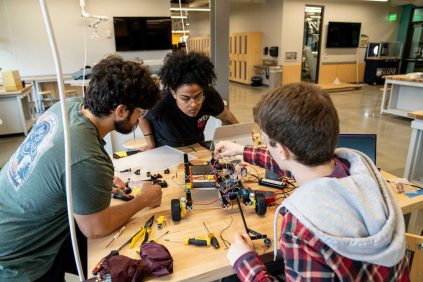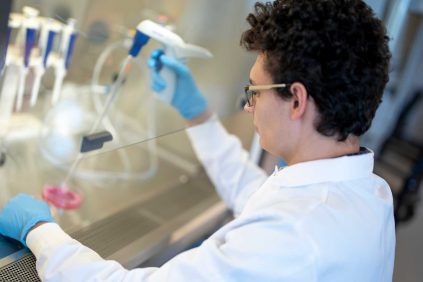Maine College of Engineering and Computing



$150 million for a multi-university Maine College of Engineering and Computing cooperatively led by the University of Maine, including a $75 million commitment from the Harold Alfond Foundation with a match obligation of another $75 million. A statewide, integrated solution to providing the technical workforce and innovations that are critical to moving Maine’s economy forward
MCEC is focused on the future: High performing, impactful public higher education service has to include anticipating state workforce needs and delivering solutions that provide critical industries, communities, and employers with the skilled workers needed to meet demand and move Maine forward. It is about providing the number of graduates with the requisite skills to maintain our state infrastructure and institutions, pursue opportunities in emerging markets, and grow the Maine economy.
MCEC delivers solutions: Thousands of new engineering and computing graduates are needed to replace members of Maine’s existing workforce, and to fill new jobs that will have to be created in our increasingly interconnected, digital global economy. The development of the Maine College of Engineering and Computing is a transformational, forward-looking approach to planning and solution delivery for the University of Maine System.
MCEC is a statewide approach: The UMS TRANSFORMS MCEC initiative seeks a statewide solution that will provide additional undergraduate engineering programs at the University of Maine and University of Southern Maine, UMaine graduate engineering programs offered in Portland, expanded pathways into the statewide college from all University of Maine System universities, community colleges, and K–12, and new opportunities for shared programs, interdisciplinary structures and partnerships.
Learn more about the Maine College of Engineering and Computing and the University of Southern Maine’s Department of Engineering today!
“I firmly believe that our institution is more than just a place of learning; it’s a catalyst for transformative progress. By intertwining interdisciplinary education with cutting-edge facilities, we are not merely teaching but empowering a new generation to push the frontiers of engineering and computing into new realms of innovation and impact.”
Giovanna Guidoboni
Dean of the Maine College of Engineering and Computing

The next generation of Maine’s workforce
Maine currently has one of the oldest populations in the country. What this means is that as the current workforce begins to retire, they will leave behind a large gap in the workforce. In the next 10 years, Maine will need to replace 4,000 engineering and computing jobs. MCECIS plans to meet that demand head on by increasing the number of industry leading graduates.
The state is not only looking toward job replacement, it also is looking toward job growth. As Maine’s economy continues to grow, the expected need for graduates in the next 10 years is expected to reach up to 5,000 new engineering and computing jobs.
